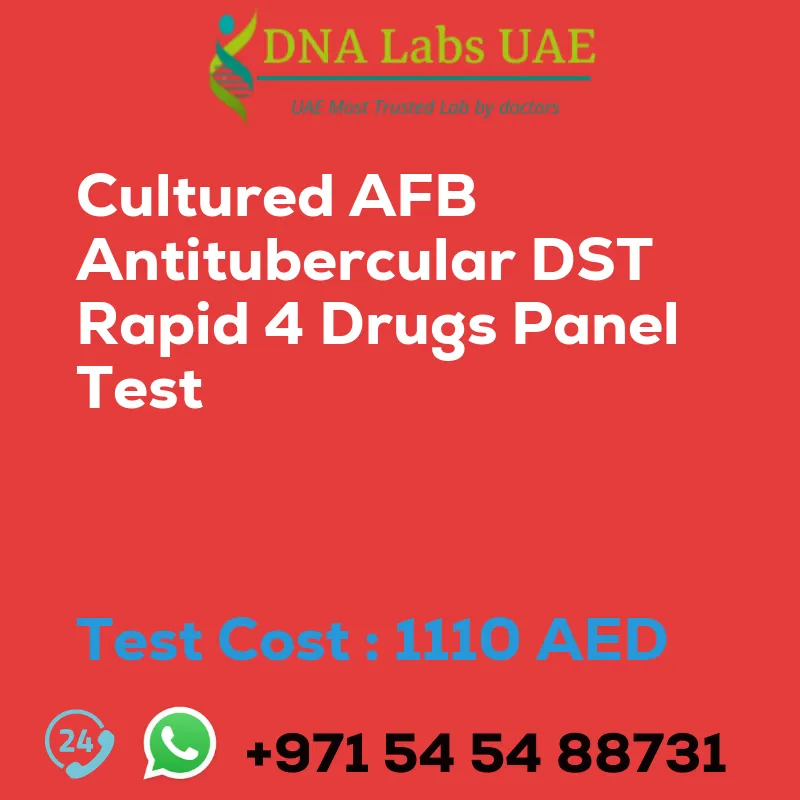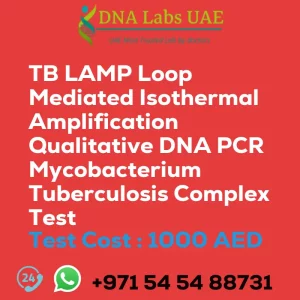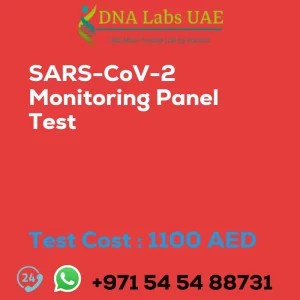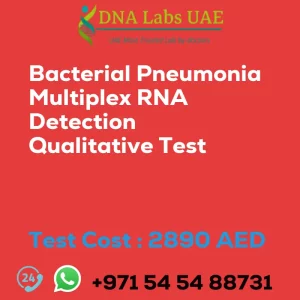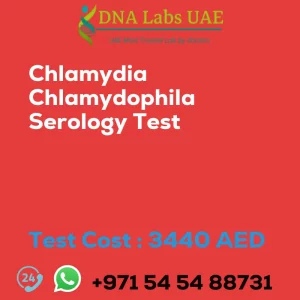CULTURED AFB ANTITUBERCULAR DST RAPID 4 DRUGS PANEL Test
Test Name: CULTURED AFB ANTITUBERCULAR DST RAPID 4 DRUGS PANEL Test
Components: Streptomycin, Isoniazid, Rifampicin, Ethambutol
Price: 1110.0 AED
Sample Condition: Submit pure growth of Mycobacterium tuberculosis complex on appropriate media in sterile screw capped container in a sealed plastic bag. Ship refrigerated OR when used with other AFB culture or Mycobacteria identification tests, the pure growth obtained in the Laboratory from specimens already submitted will be processed for Antitubercular Sensitivity.
Report Delivery: Sample Daily by 3.30 pm; Report 21 days
Method: Automated Fluorescent
Test Type: Tuberculosis
Doctor: Physician
Test Department: Pre Test Information
No special preparation required
Test Details
The CULTURED AFB ANTITUBERCULAR DST RAPID 4 DRUGS PANEL test is a laboratory test used to determine the susceptibility of Mycobacterium tuberculosis (the bacterium that causes tuberculosis) to four commonly used antitubercular drugs. The test helps guide the choice of appropriate antibiotics for the treatment of tuberculosis.
The four drugs included in this panel are:
- Isoniazid (INH): A first-line drug used for the treatment of tuberculosis. It inhibits the growth of the bacteria by interfering with the synthesis of mycolic acids, an essential component of the bacterial cell wall.
- Rifampicin (RIF): Another first-line drug that inhibits the synthesis of RNA in the bacteria. It is highly effective against tuberculosis and is often used in combination with other drugs.
- Ethambutol (EMB): A bacteriostatic drug that inhibits the synthesis of arabinogalactan, an important component of the bacterial cell wall. It is usually used in combination with other drugs for the treatment of tuberculosis.
- Pyrazinamide (PZA): A drug that is active against the dormant forms of the bacteria. It disrupts the cellular metabolism of the bacteria and is often used in the initial phase of tuberculosis treatment.
During the test, the bacteria obtained from the patient’s sputum or other clinical samples are cultured in the presence of these four drugs. The growth of the bacteria is then observed, and the minimum inhibitory concentration (MIC) of each drug is determined. The MIC is the lowest concentration of the drug that inhibits the growth of the bacteria. Based on the MIC values, the susceptibility of the bacteria to each drug is determined.
The results of the test help clinicians choose the most effective combination of drugs for the treatment of tuberculosis, as drug resistance is a major concern in tuberculosis treatment.
| Test Name | CULTURED AFB ANTITUBERCULAR DST RAPID 4 DRUGS PANEL Test |
|---|---|
| Components | *Streptomycin*Isoniazid *Rifampicin *Ethambutol |
| Price | 1110.0 AED |
| Sample Condition | Submit pure growth of Mycobacterium tuberculosis complex on appropriate media in sterile screw capped container in a sealed plastic bag. Ship refrigerated ORwhen used with other AFB culture or Mycobacteria identification tests, the pure growth obtained in the Laboratory from specimens already submittedwill be processed for Antitubercular Sensitivity. |
| Report Delivery | Sample Daily by 3.30 pm; Report 21 days |
| Method | Automated Fluorescent |
| Test type | Tuberculosis |
| Doctor | Physician |
| Test Department: | |
| Pre Test Information | No special preparation required |
| Test Details |
The CULTURED AFB ANTITUBERCULAR DST RAPID 4 DRUGS PANEL test is a laboratory test used to determine the susceptibility of Mycobacterium tuberculosis (the bacterium that causes tuberculosis) to four commonly used antitubercular drugs. The test helps guide the choice of appropriate antibiotics for the treatment of tuberculosis. The four drugs included in this panel are: 1. Isoniazid (INH): A first-line drug used for the treatment of tuberculosis. It inhibits the growth of the bacteria by interfering with the synthesis of mycolic acids, an essential component of the bacterial cell wall. 2. Rifampicin (RIF): Another first-line drug that inhibits the synthesis of RNA in the bacteria. It is highly effective against tuberculosis and is often used in combination with other drugs. 3. Ethambutol (EMB): A bacteriostatic drug that inhibits the synthesis of arabinogalactan, an important component of the bacterial cell wall. It is usually used in combination with other drugs for the treatment of tuberculosis. 4. Pyrazinamide (PZA): A drug that is active against the dormant forms of the bacteria. It disrupts the cellular metabolism of the bacteria and is often used in the initial phase of tuberculosis treatment. During the test, the bacteria obtained from the patient’s sputum or other clinical samples are cultured in the presence of these four drugs. The growth of the bacteria is then observed, and the minimum inhibitory concentration (MIC) of each drug is determined. The MIC is the lowest concentration of the drug that inhibits the growth of the bacteria. Based on the MIC values, the susceptibility of the bacteria to each drug is determined. The results of the test help clinicians choose the most effective combination of drugs for the treatment of tuberculosis, as drug resistance is a major concern in tuberculosis treatment. |

